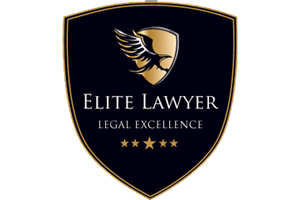- Free Consultation: (213) 251-5533 Tap Here to Call Us
USCIS Expands Good Moral Character Requirements for Naturalization

The U.S. Citizenship and Immigration Services recently expanded its policy guidance last month regarding unlawful acts that may prevent an applicant from meeting the good moral character (“GMC”) requirement for naturalization. The commission of, or conviction or imprisonment for, an unlawful act, during the statutory period for naturalization, may render an applicant ineligible for naturalization should the act be found to adversely reflect on moral character. Further, a lawful permanent resident who applies for naturalization should note that they are essentially making an application for admission into the U.S., and that a denial of their application could result in deportation proceedings.
Previously, the USCIS Policy Manual did not include extensive information on unlawful acts. This update to the Policy Manual provides additional examples of unlawful acts and instructions to ensure USCIS adjudicators make uniform and fair determinations, and further identifies unlawful acts that may affect GMC based on judicial precedent. This update does not change the impact of an unlawful act on USCIS’ analysis of whether an applicant can demonstrate GMC. Adjudicators in the field receive extensive training to apply the law on GMC and unlawful acts regulation. They are aware of which unlawful acts could bar an applicant from naturalization and are not limited by the examples listed in the Policy Manual.
On December 10, 2019, USCIS issued separate policy guidance in the USCIS Policy Manual about how two or more convictions for driving under the influence or post-sentencing changes to criminal sentencing might affect GMC determinations. On Oct. 25, the attorney general decided in Matter of Castillo-Perez that two or more DUI convictions during the statutory period could affect an applicant’s good moral character determination. When applying for an immigration benefit for which GMC is required, applicants with two or more DUI convictions may be able to overcome this presumption by presenting evidence that they had good moral character even during the period within which they committed the DUI offenses. The term DUI includes all state and federal impaired-driving offenses, including driving while intoxicated, operating under the influence, and other offenses that make it unlawful for an individual to operate a motor vehicle while impaired.
Also on October 25, 2019 the attorney general decided in Matter of Thomas and Thompson that the definition of “term of imprisonment or a sentence” generally refers to an alien’s original criminal sentence, without regard to post-sentencing changes. Post-sentencing orders that change a criminal alien’s original sentence will only be relevant for immigration purposes if they are based on a procedural or substantive defect in the underlying criminal proceeding.
In response to the two decisions, the USCIS has updated policy guidance on establishing good moral character for immigration purposes. USCIS Deputy Director Mark Koumans explained “As the attorney general directed, this guidance enhances public safety by ensuring that USCIS adjudicators consider driving under the influence convictions with the appropriate standard of scrutiny.”
Under the Immigration and Nationality Act (INA), an applicant for naturalization must establish GMC. Although the INA does not directly define GMC, it does describe certain acts that bar establishing GMC of an applicant. Examples of unlawful acts recognized by case law as barring GMC include, but are not limited to, the following:
- Bail jumping;
- Bank fraud;
- Conspiracy to distribute a controlled substance;
- Failure to file or pay taxes;
- False claim to U.S. citizenship;
- Falsification of records;
- Forgery uttering;
- Insurance fraud;
- Obstruction of justice;
- Sexual assault;
- Social Security fraud;
- Unlawful harassment;
- Unlawful registration to vote;
- Unlawful voting; and
- Violation of a U.S. embargo.
In general, applicants must show they have been, and continue to be, people of GMC during the statutory period before filing for naturalization and up until they take the Oath of Allegiance. The statutory period is generally five years for permanent residents of the United States, three years for applicants married to a U.S. citizen, and one year for certain applicants applying on the basis of qualifying U.S. military service.
Please note that the information provided on this website is for general information purposes only and is not to be construed nor relied upon as legal advice nor the formation of an attorney-client relationship. For a free consultation with Attorney Thomas M. Lee, please contact us.








